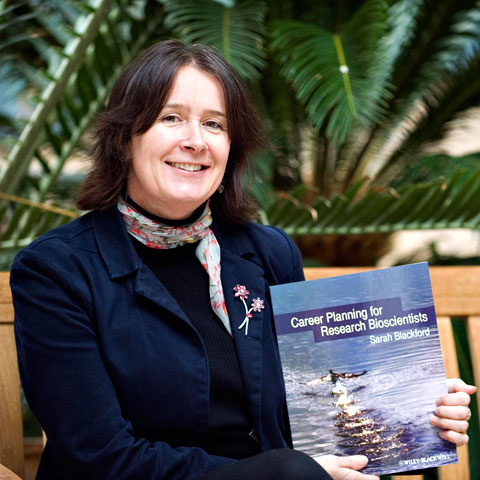How to turn your PhD into a career

Careers expert Sarah Blackford says PhD graduates need to be aware of the huge range of opportunities open to them.
Her new book, Career Planning for Research Bioscientists (Wiley Blackwell) is full of advice aimed at doctoral and postdoctoral researchers looking for a career within or outside of academia.
Based at the Lancaster Environment Centre, Sarah is the Head of Education and Public Affairs at the Society for Experimental Biology and has worked at Lancaster University for over ten years.
She said: “Postdoctoral researchers are highly skilled, highly trained people with huge potential and lots of opportunities but they need to take control of their careers.
“The concept of a job for life has long gone, but researchers have the opportunity to forge a successful career in many occupational fields.”
“Employers are interested in taking on scientists who are not afraid of technology and have associated skills such as problem solving, numeracy, analytical and critical thinking.”
These areas include research in industry, science administration, policy and communications work – or a complete change of direction.
Ian Nelson gained a PhD in Biophysics at Lancaster University and is now a sound engineer, touring the world with bands like The Prodigy and Placebo.
“I do live concerts with international rock bands touring for weeks and even months on end. This may seem glamorous on the surface, but nowadays it is a serious career.”
Ian was in a band while at university and was offered work by a sound engineering company after his PhD.
He said: “I never regret doing my PhD. It gave me a great sense of achievement. A PhD can open a lot of doors to you, not just a postdoctoral position.”
He said that sound engineering requires similar skills to those developed during his postgraduate degree.
“I had been amplifying signals, using recording instruments and employing my knowledge of maths and physics which I translated into sound engineering very easily.”
He has now been appointed as his company’s training co-ordinator, which directly draws on his experience
“You never know what life has in store for you and now that I am teaching, I can draw on the lecturing experience I gained during my PhD and transfer it into this new and exciting role.”
Sarah said Ian’s story shows how personal interests can lead to a new career.
“Personal factors and transferable skills can be as influential, if not more so, than academic knowledge depending on a person’s career ambitions”.